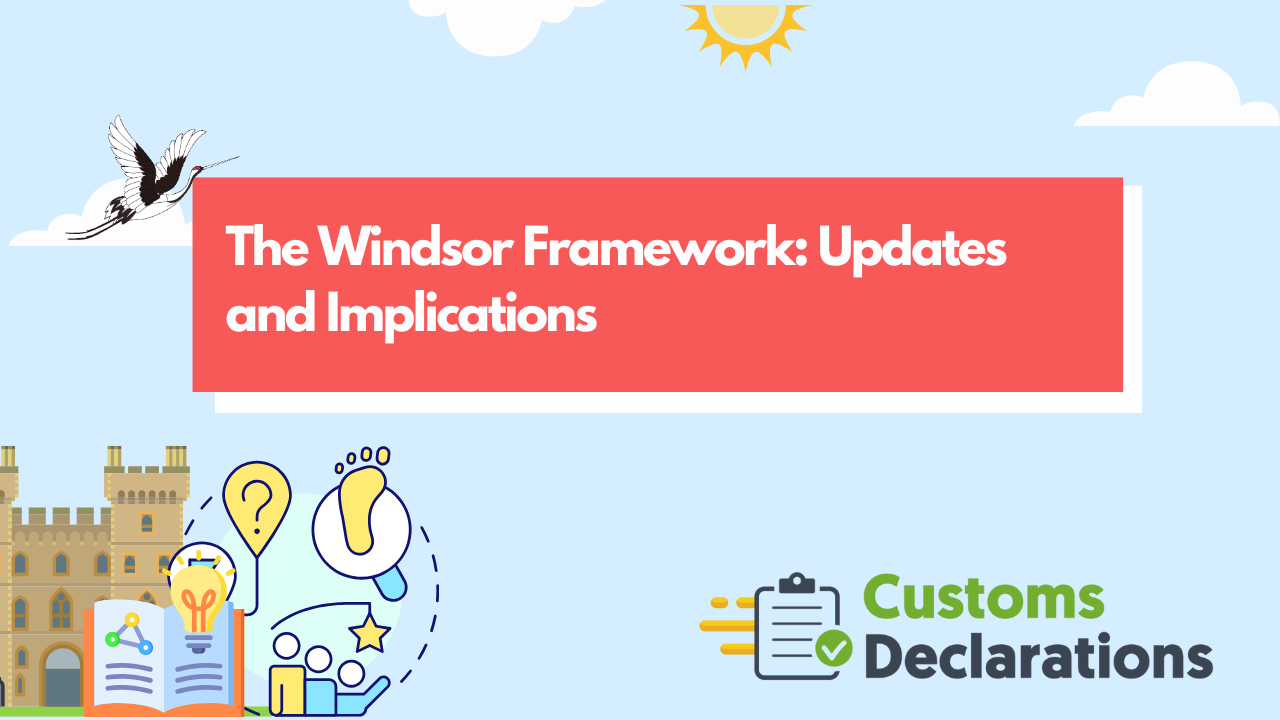The Windsor Framework, established in early 2023, redefines trade regulations between Great Britain and Northern Ireland, aiming to address challenges posed by the Northern Ireland Protocol. Recent delays in implementing certain customs processes have significant implications for businesses operating across the Irish Sea.
Overview of the Windsor Framework
The Windsor Framework was introduced to streamline the movement of goods between Great Britain and Northern Ireland post-Brexit. It seeks to balance the need for border checks with the desire to maintain seamless trade, introducing measures such as ‘green lanes’ for goods staying within Northern Ireland and ‘red lanes’ for those destined for the EU.
Recent Delays in Customs Processes
Key elements of the Windsor Framework, particularly new customs processes for parcels and freight, were scheduled for implementation on October 1, 2024. However, these have been postponed until at least March 2025. This delay affects:
- Business-to-Business Parcels: The introduction of customs procedures for B2B parcels moving from Great Britain to Northern Ireland has been deferred.
- Trusted Trader Scheme: Parcel carriers were expected to join a new ‘trusted trader’ scheme to facilitate smoother customs processes; this requirement is now delayed.
Reasons for the Delay
The postponement is attributed to several factors:
- Preparation Challenges: Businesses and border industries have faced difficulties in readying for the new processes, with events like the General Election impacting preparations.
- Stakeholder Concerns: Feedback from businesses indicated insufficient time to adapt to the impending changes, prompting authorities to reconsider the timeline.
Implications for Businesses
The delay offers both challenges and opportunities for businesses:
- Extended Preparation Period: Businesses now have additional time to understand and adapt to the forthcoming customs processes, allowing for better compliance planning.
- Continued Uncertainty: The postponement may prolong uncertainty, affecting business planning and operations, especially for those heavily reliant on cross-border trade.
- Operational Adjustments: Companies may need to adjust their logistics and supply chain strategies to accommodate the eventual implementation of new customs procedures.
Recommendations for Businesses
To navigate this evolving landscape, businesses should:
- Stay Informed: Regularly consult official sources and industry advisories to keep abreast of updates regarding the Windsor Framework and associated customs processes.
- Engage in Consultations: Participate in stakeholder consultations to voice concerns and gain clarity on upcoming requirements.
- Review Supply Chains: Assess and, if necessary, restructure supply chains to ensure compliance with future customs procedures.
- Invest in Training: Equip staff with the necessary knowledge and skills to manage new customs processes effectively once implemented.
How Customs Declarations UK Platform Can Help with Windsor Framework Updates
The Customs Declarations UK platform is well-positioned to support businesses in navigating the complexities of the Windsor Framework, including upcoming customs processes for goods moving between Great Britain and Northern Ireland. By leveraging advanced features and expertise, Customs Declarations UK can provide significant value to businesses adapting to these changes.
As the Windsor Framework continues to evolve, Customs Declarations UK is committed to equipping businesses with the tools and knowledge they need to adapt seamlessly. By simplifying compliance processes, integrating real-time updates, and providing comprehensive support, the platform will empower businesses to navigate these changes confidently and maintain efficient cross-border trade.

